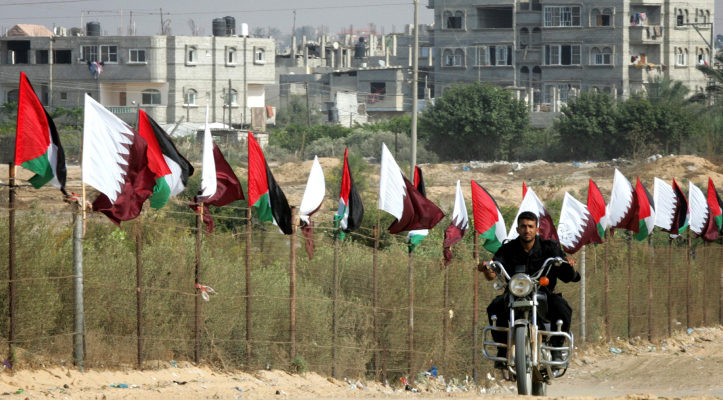The Hamas-Israel deal allegedly brings approval for infrastructure construction and reopening crossings in exchange for cessation of balloon terror.
By Batya Jerenberg, World Israel News
Hamas credited the Qatari envoy who has been shuttling for days between Israel and the Gaza Strip Monday night for brokering a deal with Jerusalem that will reopen the coastal enclave in exchange for quiet on the border.
“After a round of talks, mediated by the Qatari representative, Mohammed al-Emadi, an understanding has been reached to avoid an escalation and stabilize the situation. Several projects were announced that will serve and alleviate the situation for our people in Gaza, given the coronavirus crisis that has struck us,” said the office of Hamas leader Yahya Sinwar in a brief statement.
It thanked al-Emadi for his efforts, which marked the first time that a country without diplomatic relations with Israel negotiated directly with Jerusalem on its behalf. Egyptian channels are usually used to engineer temporary ceasefires with Hamas.
Citing Hamas sources, Haaretz reported that Israel’s concessions include approval for Qatar to work on infrastructure projects in the Strip such as constructing a gas pipeline and funding the operation of a power station, and to send its financial aid for at least the next several months.
Israel will also reopen the crossings into Gaza and the Gazan fishing area, which had been closed after the terrorist organization began launching dozens of arson balloons a day into southern Israel some three weeks ago. A few rockets were also fired at Israel, causing some injuries to people running for shelter.
The fires caused by the incendiary devices ruined dozens of hectares of forest and brushland. The terrorists also attached explosive devices to a number of balloons, but Israeli sappers defused those that landed in towns and agricultural communities along the border, thereby preventing any damage or injuries.
The IDF responded to each day’s salvo by hitting Hamas targets in the Gaza Strip that destroyed buildings but killed no one.
As it was specifically mentioned in Sinwar’s statement, one factor that motivated Hamas to bring about the de-escalation sooner rather than later is the outbreak of the coronavirus pandemic in the area under its control.
Health authorities have had a lockdown in place for the past week as confirmed cases shot up to 60 and at least three people died. As part of the understanding reached between the long-time adversaries, Israel will be sending testing equipment and medical supplies to combat the virulent disease.
The Coordinator of Government Activities in the Territories has already confirmed that commercial goods and fuel deliveries will restart Tuesday. Gazans had been down to four hours a day of electricity due to the fuel shortage imposed as a result of the airborne terrorism.





